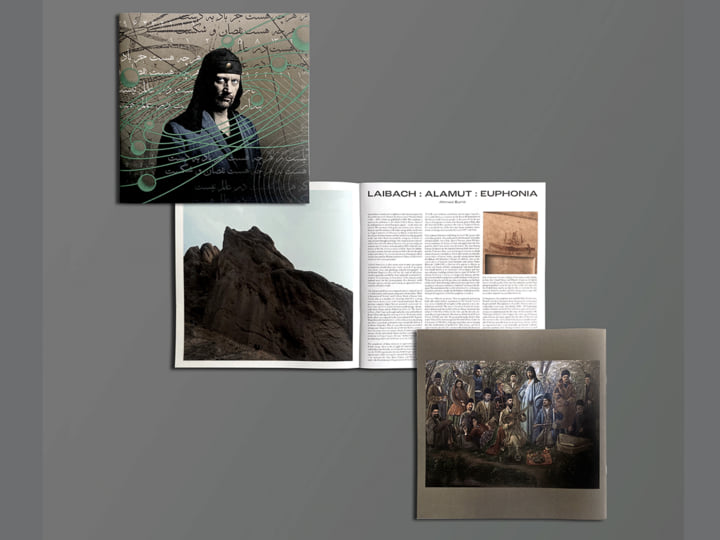The Slovenian ensemble Laibach will stage its evocation of Vladimir Bartol’s timely fable, ‘Alamut’, at Frankfurt with some 100 performers.
In its 75th year, one of Frankfurter Buchmesse‘s (October 18 to 22) most dramatic moments is likely to occur not in the halls of Messe Frankfurt or in the Agora at its center. Instead, it can be expected to arrive at 8 p.m. on Frankfurt Thursday (October 19) at the city’s domed Jahrhunderthalle, Centennial Hall.
Alamut is an original symphonic work based on the Slovenian writer Vladimir Bartol’s 1938 novel of that name. It’s a concert event created by the Slovenian avant-garde ensemble Laibach, and this demanding, ambitious work has gathered a kind of drive of its own, according to Laibach’s Ivan “Jani” Novak. He told members of the news media in a press conference last week that after the group played North Korea, its current efforts to perform in Iran seemed obvious: “We like troubled territories.”
The roughly 70-minute production–staged only in the one performance in Frankfurt–is scheduled to feature the RTV Slovenia Symphony Orchestra under the direction of the Iranian conductor Navid Gohari. Also onstage will be Tehran’s Human-Voice Ensemble and the Gallina Women’s Choir. The concert’s earliest iterations were seen last year at Festival Ljubljana. Tickets to the October 19 performance of Laibach’s Alamut in Frankfurt are available here.
Some will see the so-called “music-theater” context (not “musical theater”) in this work, a theatrical rendering of musical eloquence, with topical nuggets as urgently compressed as those of the auteur Martha Clarke (Vienna: Lusthaus) but at a scale as bracing as the works of Robert Wilson with Philip Glass (Einstein on the Beach). Just as a fully conceived rendition of Christopher Theofanides’ The Here and Now must deliver the lyrics of Rumi with sensual impact, so must this concert essay on the Alamut legend and its awful tale. Those who know the extraordinary difficulty of Krzysztof Penderecki’s Utrenja: The Entombment of Christ may be best prepared for the profound questions that Bartol’s work excavates from the ancient legendry attached to the fortress Alamut.
In its Frankfurt staging, Laibach’s Ivan Novak says the work requires “more than 100 people, including technicians and two choirs.” The logistical challenge of transporting such musical forces and equipment for the show and then flying them back out, he says, “is actually more complicated than the symphony itself.”
The figure at the mythic heart of Alamut–the charismatic, self-styled prophet Hassan-i Sabbāh–is reputed to have said, “The killing of this devil is the beginning of bliss.” And he spoke those words to what is known as his Order of Assassins: the followers he indoctrinated.





